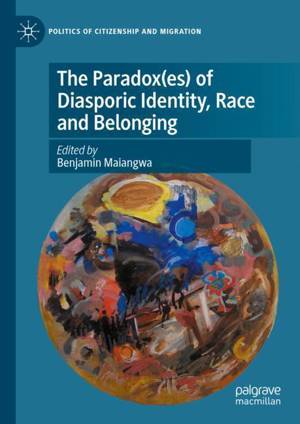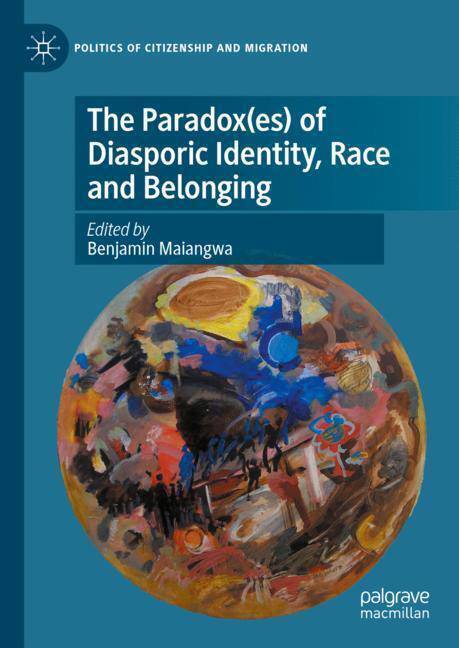
Bedankt voor het vertrouwen het afgelopen jaar! Om jou te bedanken bieden we GRATIS verzending (in België) aan op alles gedurende de hele maand januari.
- Afhalen na 1 uur in een winkel met voorraad
- In januari gratis thuislevering in België
- Ruim aanbod met 7 miljoen producten
Bedankt voor het vertrouwen het afgelopen jaar! Om jou te bedanken bieden we GRATIS verzending (in België) aan op alles gedurende de hele maand januari.
- Afhalen na 1 uur in een winkel met voorraad
- In januari gratis thuislevering in België
- Ruim aanbod met 7 miljoen producten
Zoeken
The Paradox(es) of Diasporic Identity, Race and Belonging
€ 213,95
+ 427 punten
Omschrijving
This book explores how questions about home and belonging have been framed in the discourses on race, migration, and social relationships. It does this with the aim of envisioning alternative modes of living and reimagining our political communities in ways that question the legacy of colonization and constructed identities which detract from our sense of obligation to each other and the planet. The book questions problematic categories of difference to transform human relations beyond the materialism of our global political economy. Questions addressed in the volume include: In what ways are combative colonial identities of difference manufactured within our national and global spaces of encounter? How can we expel the racialized and tribalized political identities that seek to purify and deny the complexities and sacredness of being human? How do we embrace the notion that everyone we encounter is a mirror reflecting our fears of suffering and our desires for happiness?
The book is set in the context of re-emerging ultra-nationalists and anti-migrant politicians on the national and international stage, advancing various strands of extreme-right and protectionist ideology couched as redemptive-welfarist strategies. The adverse impacts of these strategies seem to be reifying a possessive idea of citizenship and identity, engendering a national fantasy that portrays communities as homogenous entities inhabiting enclosed borders. This is essentially a compendium of conversations across the intersection of the racial, national, ethnic, spiritual, and sexual boundaries in which we live.
The book is set in the context of re-emerging ultra-nationalists and anti-migrant politicians on the national and international stage, advancing various strands of extreme-right and protectionist ideology couched as redemptive-welfarist strategies. The adverse impacts of these strategies seem to be reifying a possessive idea of citizenship and identity, engendering a national fantasy that portrays communities as homogenous entities inhabiting enclosed borders. This is essentially a compendium of conversations across the intersection of the racial, national, ethnic, spiritual, and sexual boundaries in which we live.
Specificaties
Betrokkenen
- Uitgeverij:
Inhoud
- Aantal bladzijden:
- 273
- Taal:
- Engels
- Reeks:
Eigenschappen
- Productcode (EAN):
- 9783031387968
- Verschijningsdatum:
- 23/10/2023
- Uitvoering:
- Hardcover
- Formaat:
- Genaaid
- Afmetingen:
- 148 mm x 210 mm
- Gewicht:
- 498 g

Alleen bij Standaard Boekhandel
+ 427 punten op je klantenkaart van Standaard Boekhandel
Beoordelingen
We publiceren alleen reviews die voldoen aan de voorwaarden voor reviews. Bekijk onze voorwaarden voor reviews.








